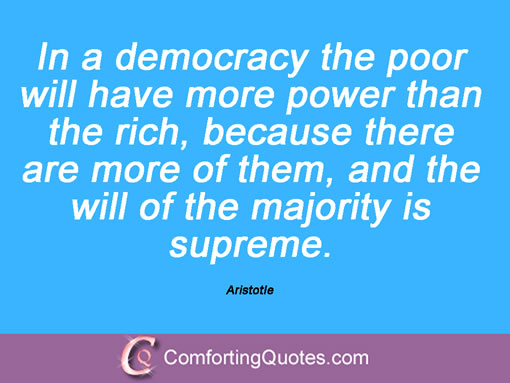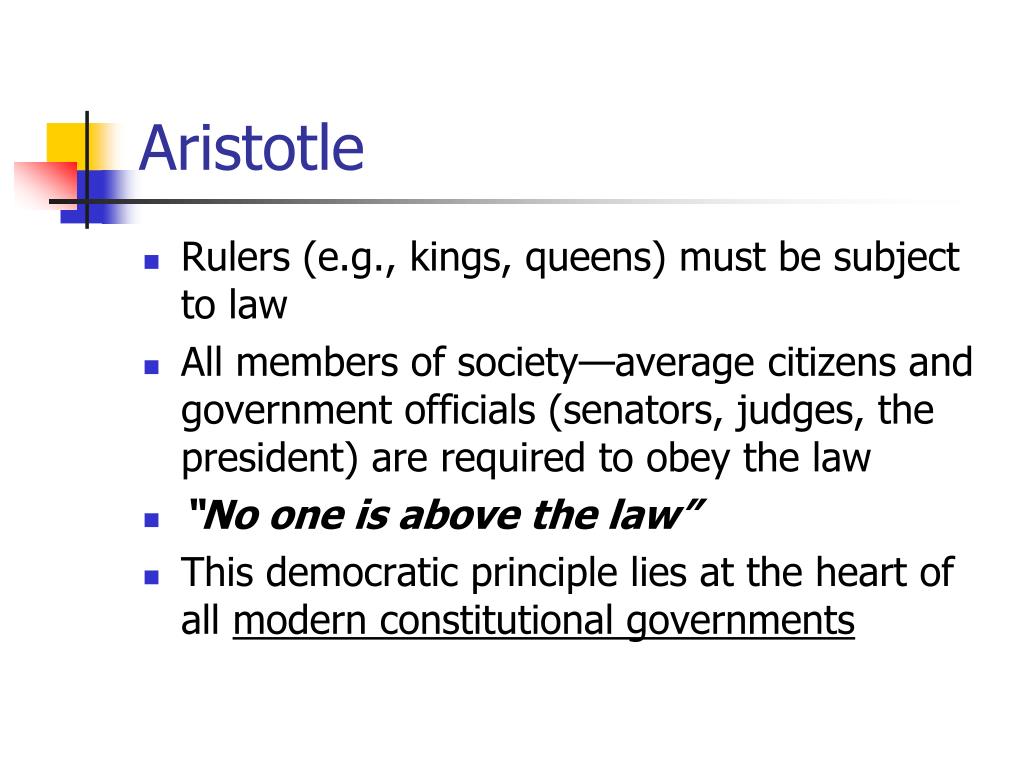


Furthermore, by permitting mixed constitutions, Aristotle is able to reconcile his theory of ethics with his theory of politics: the best constitution, namely aristocracy/polity with the rule of the middle class, is the mean between the two extremes of pure oligarchy and pure democracy. However, the new typology permits Aristotle to classify these new constitutions not as democracies or oligarchies but as mixed. The sixfold model fails to classify certain types of constitution when confronted with a majority that is rich or a minority that is poor. Thus, the clear-cut distinctions in the sixfold model between a genuine and perverted form of each of the three basic constitutions (rule of one, few, and many) is replaced by a continuum of constitutions with gradual transitions from one type to another.įor Hansen, this new typology allows Aristotle to classify constitutions when confronted with the problem of whether the criterion for distinguishing between oligarchy and democracy should be wealth or numbers – a question that is raised in Book 3, Chapters 7-8. Kingship and tyrannies are no longer treated as constitutions but are classified as monarchies. According to Aristotle, all constitutions are either democracies, oligarchies, or a mixture of the two: aristocracy, if the oligarchical element prevails, and polity if the democratic elements are dominant. The first chapter looks at Books 4-6 of the Politics where Aristotle provides the typology of oligarchy and democracy to replace the sixfold model described in Book 3. However, the book would have been enriched by the addition of an introduction weaving the chapters together into a more coherent depiction of Aristotle’s Politics.

The sustained focus on the Politics creates a cumulative picture of Aristotle’s theory of politics, with each chapter contributing fresh perspectives and treatment of issues that have been neglected. The book has eight chapters, seven of which are revisions of pieces previously published in various volumes, mostly from the 1990s, and the eighth a revised lecture that was delivered at the University of Athens in 2012. Reflections on Aristotle’s Politics is another innovative and interesting work by Mogens Herman Hansen on Athenian democracy, but this time with a singular focus on Aristotle’s Politics. Reflections on Aristotle’s Politics.Mogens Herman Hansen, Copenhagen: Museum Tusculanum Press, 2013.


 0 kommentar(er)
0 kommentar(er)
